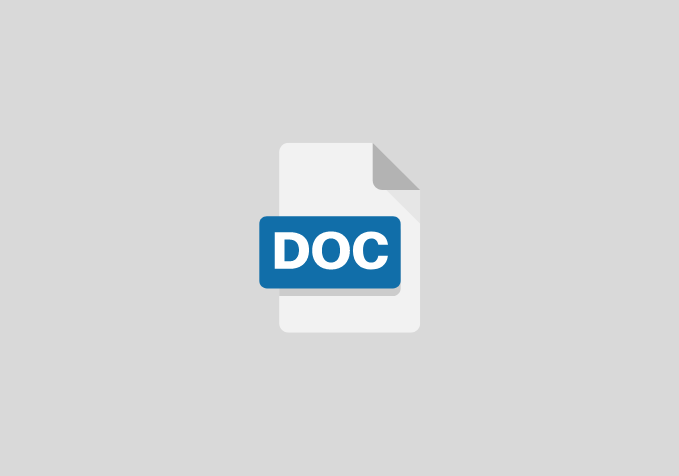Domestic Waste Disposal, Effect and the Solutions in Enugu State (a Case Study of Eswama)
CHAPTER ONE
Purpose of the Study
The objective of the study includes:
1 To discover the ability of the ESWAMA as an agency to control and manage waste disposal in the society.
2 To find out the effect of domestic waste disposal in the environment and peoples’ health.
3 To find out the effect of waste management process by ESWAMA.
4 To discover the solution to domestic waste disposal in the society.
5 To find out how government help to motivate ESWAMA in order to carryout their job objectively.
CHAPTER TWO
LITERATURE REVIEW
Theoretical Frame Work
In reviews of effect and solution of domestic waste disposal in Enugu State, the researchers looked in a number of empirical and theoretical literature relating to this study. This study centres on the effect of the method of waste disposal, the impact of waste management by ESWAMA as an agency used by the state government, solution of disposing waste by the local government.
Nnamani (2000), states that waste is generated from residential houses, commercial municipal, industrial, open spaces, treatment plant, and agricultural areas. These waste include wastes from solid or semi-solid materials that the possessor or the owner no longer considers of sufficient value to retain.
According to World Health Organization, domestic wastes are those generated from commercial establishments and household activities. They occur in different forms; water-borne waste from chemical and laboratory waste.
CHAPTER THREE
METHODOLOGY
This chapter dealt with the methodology of the study; examine the area of study, the population of study, sample size and instrumentation of the instrument used, method of data collection and the techniques applied in data analysis.
The Research Design
The researchers adopted survey research method.
Nworgu 1991 defined survey as one in which group of people are studied by collecting and analyzing data collected from a sample size. It involves the use of questionnaire and interview to collect a large analyzing the opinion expressed by the respondents and reporting the findings using percentages to show the distribution of the opinion of respondents.
CHAPTER FOUR
PRESENTATION AND ANALYSIS OF DATA
In this chapter, data from the study were presented and analyzed.
Research question 1(Table 1)
ESWAMA as an agency help to control illegal dumping of refuse at road sides, enclosure, streams in neighbourhoods etc.
CHAPTER FIVE
DISCUSSION, CONCLUSIONS AND RECOMMENDATIONS
Discussion of Findings
Question 1 (table 1) proved that ESWAMA help to control and manage waste disposal in the society. The result of findings here indicates that ESWAMA was established to develop and implement policies of the management of solid and liquid wastes that would promote the health and well being of the people.
Question 2 (Table 2) emphasized on the effects of improper waste disposal on the peoples’ health and environment. This table indicate that illegal waste disposal is dangerous to health and environment. The result here proved that improper waste disposal contribute to health problems Onyioji (1983).
Question 3(table 3) proved that waste management activities by the ESWAMA, individuals and families has a great impact to peoples’ health and environment.
According to World Bank on another report (1990) on the monitoring and enforcement of pollution regulation in the United States of America, reported that during the 1970 and 1990s much more public attention was focused on getting pollution equipment in place.
Nnamani opined that Government intention on designating the last Saturday of every month as a sanitation day is to tackle in serious manner the insurmounting problem of ever-increasing waste generated from domestic, commercial, recreational and those from working places.
With these result of finding there is an evidence to prove that waste management practices helps to keep environment clean and improve human health.
Question 4(table 4) proved that waste disposal of the environment has a solution. Ayeni M.A.O. (1987) states that past governments in Nigeria have attempted to tackle waste management issues through “task force” approach. The state sanitation laws compel residents to cooperate with ESWAMA in efforts to keep the environment clean.
Question 5(table 5) indicates that government motivate ESWAMA in order to carryout their job objectively. Since the ESWAMA are been provided with work facilities that will enhance their activities.
Question 6 (table 6) made us to know the 58.3% of respondents were youth while 41.7% were parents.
Question 7 (table 7) showed us that 58.3% of respondents were male while 41.7% were female.
Recommendations
We recommend that:
1 Government should facilitate the waste management activities through the provision of skills and technology.
2 People should embark on sanitation programme/activities at least every last Saturday of every month.
3 ESWAMA should carry out their responsibilities, objectively as an agency without collecting bribe from defaulters.
Suggestion for Further Studies
1 Availability of technology to carryout waste management activities in the society.
2 The role of proper prosecution of defaulters of sanitation laws has a vital role in the solution of domestic disposal in the cities
Limitations of the Study
The problems, difficulties and short coming encountered by the researchers was lack of enough personnel to help in the resource, inadequate finance and time.
The researchers encountered much problem from the illiterates among the respondents, because there is need for researchers to explain some of the questions in the questionnaire before they could give the accurate answer to the questions.
REFERENCES
- J. Nnamani (2000), “Waste Management problem of Nigeria Urban Centers”. ACENA VENTURES LTD., Enugu.
- Levi C. Nwodu (2006). “Research Communication and other behavioural Sciences. Principles, methods and issues. Rhycekerex Publishers, Enugu.
- O.J. Nnamani (2000). “Environmental Impact Assessment in Project Planning and management. ACENA publishers.
- Nwankwo C. K. (1994). “Solid waste management, general reviews and a glance at the Nigerian situation. J. Mining Geol.
- Izeze I. (1999). “Waste management: a solution. The Guardian News paper. 18th August, p. 41.
- Ayeni M.A.O. (1987). “Patterns, processes and problems of urban development.


